The Games I Can't Play
originally posted on Cohost, 03-24-2023
My mother used to walk me to school before I was old enough to be sent off by myself. We had to be out the door at 8:00 AM to arrive at the time I was used to. One first-grade morning at 7:59 AM, my mother was still preoccupied in the bathroom, preparing for the day and doing her hair. I was seated on the carpet outside of the bathroom, a quiet anxiety compounding in my tiny body, prepared to rocket to the back door at the first sign of my mother's readiness. The digital watch on my wrist (a dreadfully powerful obsession-magnifying curse for a child like me) replaced the numbers five and nine with two zeros, which heated my simmering stress into a boiling panic and I began full-throatedly, glob-tearedly sobbing. My mother immediately emerged from the bathroom, shocked as I managed to hiccup that I'm going to be late for school. The tenseness loosened from her shoulders and her voice lowered to a pacifying softness. She tried to explain that being a few minutes late isn't going to be a problem – I wouldn't get in trouble, I wouldn't miss any of my lessons – but the possible consequences of lateness never even registered to me, nor did they matter once they were brought to my attention. What disturbed me so profoundly was the lateness itself. We left with her not having fully finished doing her hair.
Somewhere along the way the crying stopped, but the physical compulsion for punctuality has never left me. Stories like this still continue to blot my life with emblematic regularity. Every day in high school I went to bed at exactly 10:00 PM and woke up at 4:00 AM, never staying up late to cram schoolwork and never being compelled to hit the snooze button on my alarm clock (even on weekends). Earlier this month my therapist said she'd be ten minutes late to our 12:00 PM appointment, so even though I consciously left home ten minutes later than usual (which felt horrible), I still somehow arrived there at my usual time of 11:55. What that means for me as a video gamist is that I've grown an affinity for games like Densha de Go! or Pikmin which predicate on effectively calculating and optimizing time-based tasks down to microseconds. Instead of rigidly controlling my life or being a disruptively off-putting quirk which people constantly feel the need to inform me they don't have, these games allow me to appreciate this aspect of myself, sometimes even feeling accomplished or proud because of it. Unfortunately, this is only one example of my many idiosyncrasies, and other games are not quite so kind to my other particularities. In extreme circumstances, this dissonance between my neurodiversity and a game's operation means we are not compatible and must part ways. I try to keep these breakups as amicable as possible but due to a recent release these have been at the forefront of my thoughts, so just this once I'll indulge in a little kiss-and-tell.
Chicory: A Colorful Tale (2021)
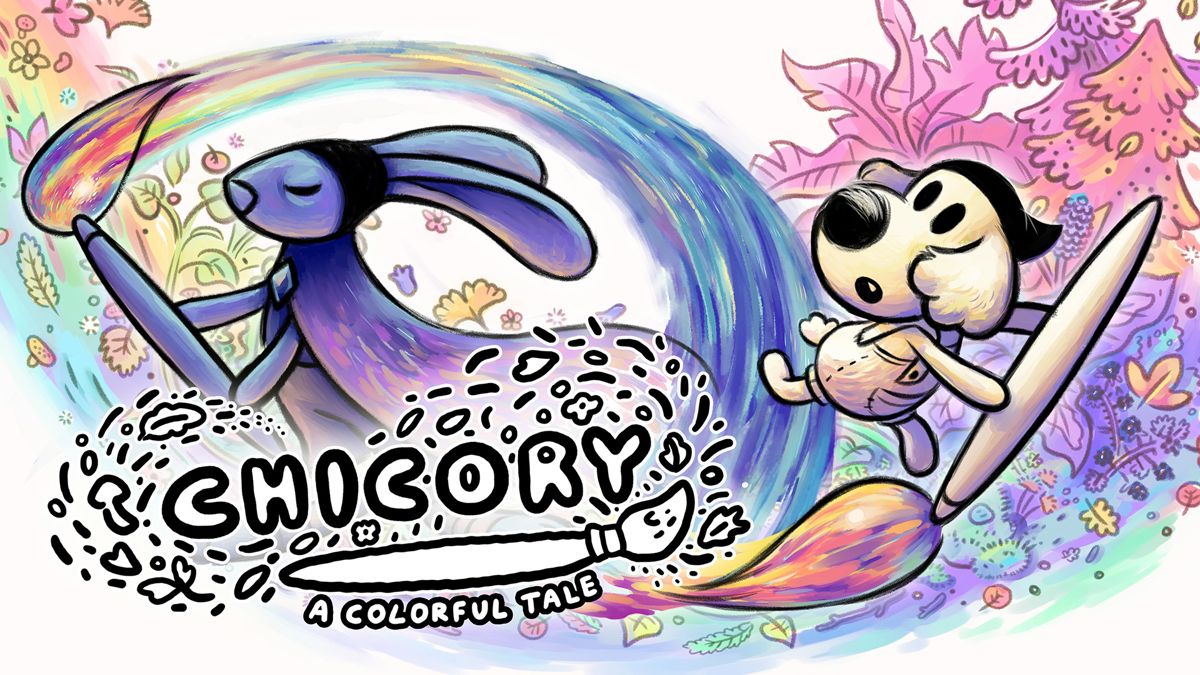
A tragic trend that will become clear across these games is that they are experiences I'd otherwise greatly enjoy. I played exactly 90 minutes of Chicory and, while I wasn't especially impressed by the writing, I loved all the mechanical nuances that were already being explored so immediately towards the start of the game. I love 2D action games, and Chicory was flaunting some excellent game-designerly tricks up its sleeve which other Zelda-likes would wait longer to reveal. This is to speak nothing of the soundtrack, which immediately and firmly established itself as a masterpiece among Lena Raine's constantly-astounding output. With all this being the case, what prevented me from pushing to 91 minutes and beyond?

One of the assignments in my eighth grade art class was to make a watercolor painting based on a reference image given by the teacher. The image I received was a school of orange fish swimming in the ocean. The school started near the camera with a group of fish fully in focus and continued outward towards the background where the fish got smaller and more bountiful. We had a class or two dedicated to sketching our images before painting them, and by the time everyone else had moved on to the watercolor I was only about one-third completed my sketch. I was rendering every single fish, and there were a lot of them! I made sure every single one was perfectly in proportion relative to each other and each one was positioned exactly correct against the background. This meticulous accuracy eventually revealed to me that the canvas was a different shape than the reference image, which immediately presented a problem of how to continue: should I compromise the proportions of the image to fit it all in the canvas, or should I sacrifice the part of the image that won't be able to fit within the canvas? I ultimately decided I'd rather omit the top of the image than to be unfaithful to its positional elements. I was working on some of the smaller fish towards the back of the school (which were basically just thin ovals) when my teacher approached and asked why I was "doing that."
"Doing what?"
"Why are you... You don't need to sketch every single one of those."
He leaned against the table with one arm and told me a story of a man who supposedly visited a beach and tried counting all the rocks. The beach was already full of pebbles and stones, but the waves continued revealing and hiding more so it was impossible to keep track of them all. The story ended with the man being escorted off of the beach and not being allowed to come back since he couldn't contain his compulsion. My teacher asked me if this story made sense and I told him "yes," but really I was wondering why that man wasn't considering the grains of sand to be rocks, and why he wasn't trying counting those as well. In any case, I understood my teacher didn't want me sketching the fish anymore, so I got started water-coloring each of the fish I managed to draw up to that point. Even the tiniest brushes we had felt a little too big for some of the background ones I had sketched.

The defining feature of Chicory is the painting mechanic, in which every single individual screen of the game is a blank canvas that can be painted over using the cursor. The intention is for players to paint the parts of the environment that particularly inspire them, along with objects which must be engaged with in order to progress. For me, each new screen was an exhausting obligation to fill the whole thing with color. I didn't even enjoy doing it, I just wasn't able to focus on anything else in the game until everything was filled in. Having only a single detail colored in because it was mandatory for progression was unacceptable. It got to the point where every room had something to interact with, so even before analyzing the room I got into the habit of preemptively painting everything immediately. The rest of the game would come after. It wasn't satisfying, it wasn't endearing, it didn't make me feel creative, it was excruciating and it was joyless. But I had to do it. After beating the first boss and realizing there was a whole Zelda-length game on the horizon – however many hours of this awful, sickening feeling of constantly resigning to my impulses – in a rare act of self-preservation I decided the only option was to simply close the game. I often imagine how nice it would be to have a version of the game that's already colored-in so additional painting on top would be superficial and insignificant, therefore allowing me to comfortably enjoy the game, but I also understand that would completely undercut the entire thematic premise of the narrative. Unfortunately this means Chicory and I are simply not meant to be.
OKAGE: Shadow King (2001)
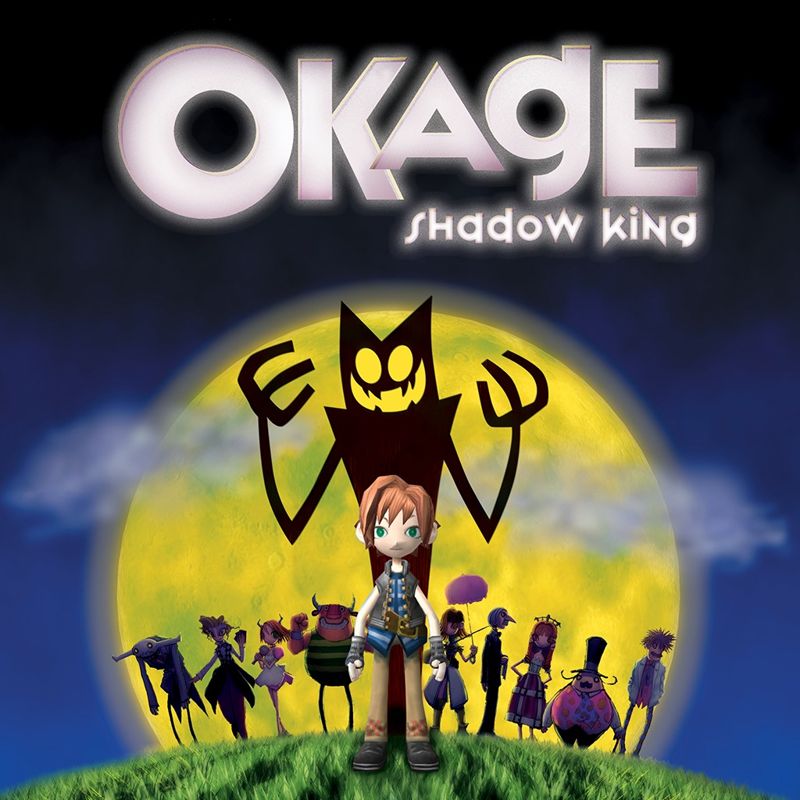
Unlike Chicory, my umbridge with OKAGE: Shadow King does not come from a foundational part of its core design, but rather a single challenge that I could not overcome. Conveniently, my thoughts on OKAGE: Shadow King leading up to this exact moment can be found in this podcast episode I did with my friend Mark last year. As you can tell, I was quite interested in it! I had some complaints about the battle system, but the tone and narrative were completely enthralling and managed to carry the rest of the experience. In a horrific twist of fate, later on this exact day when we recorded the podcast, I entered The Escapeless Abyss. No I'm not being dramatic, it really is called that. The Escapeless Abyss is a dark, completely featureless dungeon with nearly imperceptible trap pifalls which connect the various floors in brain-twistingly nonsensical ways (at least, it feels nonsensical to me). Solving a puzzle or pressing a switch will reveal a cutscene opening of one of the countless featureless doors on one of the countless featureless walls in one of the countless featureless rooms in one of the countless featureless floors. Maybe the newly accessible door is right across the hall, or maybe it requires an intense familiarity with every single trap on every floor to reach the correct door on the exact opposite side of the dungeon. There's simply no way to know aside from checking every single door. All of this is happening alongside frequent battle encounters, which further discombobulates by temporarily dragging the player to a completely unrelated zone and requiring a wholly different mind-state from navigating a maze. The various writings, remarks, and reviews around the internet seem to imply that this is a tedious and frustrating task even for (presumably) neurotypical players, let alone someone like me.

My bodily compulsion for punctuality and my hyper-vigilant attention to detail are aspects of my neurodiversity that I speak regularly and freely about because they're such forwardly-present forces in the way I live my life. Anyone who spends any meaningful amount of time with me will catch on to either or both of these aspects without my needing to mention them; there's simply no way to hide it. Being directionally challenged is a facet of myself I keep quiet about because it's much less relevant in my daily life and, frankly, it's horrendously embarrassing. I'm aware of the names of streets and notable landmarks around my area, but the order of them and their proximity to each other is something I simply can't picture in my mind or factually recall with any clarity. One evening in 2017 I had to walk home from my job at a Dollar Tree which was only a 5 minute drive from my house, maybe a 15 minute walk. I got lost for two hours in the rain and had to call my mother to pick me up at a building I recognized but had no idea where it was in relation to any other buildings I knew. In seventh grade we had to identify the general location of every US state and capitol on a blank map of the country. I failed that test five times in a row (the only student to fail this test more than once) and was only allowed to "pass" because my teacher added up all of my combined grades across the five tests, which in the end equaled a single passing score. Any time I want to bring my friends somewhere, I need to send them a text message with the address so they can use their phone as a GPS because I would not be capable of dictating the directions to them – and it goes without saying that they need to be the one driving, since I do not have a driver's license and for my own sake should probably never get one.
Despite how it seems, video games can actually be a refreshing reprieve from my directional difficulty in real life. A well-designed video game regularly has visually striking landmarks and bespoke color palettes which makes differentiating between different areas more intuitive than it is in reality. In this way, I'm actually much more capable of navigating virtual spaces than physical ones, and sometimes I even have fun getting lost in them! Some of my favorite games of all time are search-action games like Hollow Knight and Super Metroid. Similarly to how Densha de Go! speaks directly to the part of my brain that desires timeliness, these search-action games speak to the part of my brain that has a hard time keeping a sense of direction, and then gives me the tools to make the connections necessary to understand the spaces more intimately, eventually becoming completely familiar and comfortable inside of them. When I collect an ability that allows me to double-jump, I can think back to a time when I needed to double-jump. Maybe I remember a room which was colored red. If I'm in a blue area, I can remember I got here by generally heading south from the red area; going north will eventually lead me back to the red. Once I get to the red area, I'll stumble upon a unique set piece, notable level design formation, or a particular arrangement of enemies which reminds me of a previous encounter I've had with it. This reminds me that the room I'm looking for is generally to the east. Thinking about locations in this way makes infinitely more sense to me than purely memorizing of how different roads, towns, and cities with nonsensical names and addresses with random numbers connect to each other.
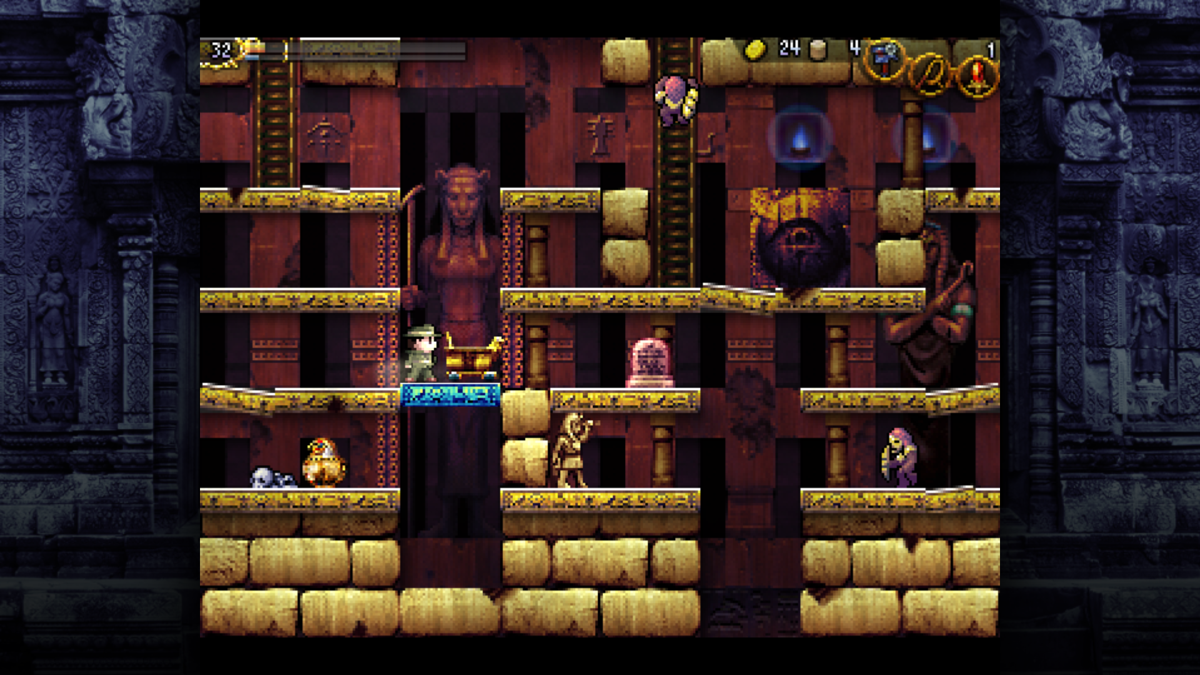
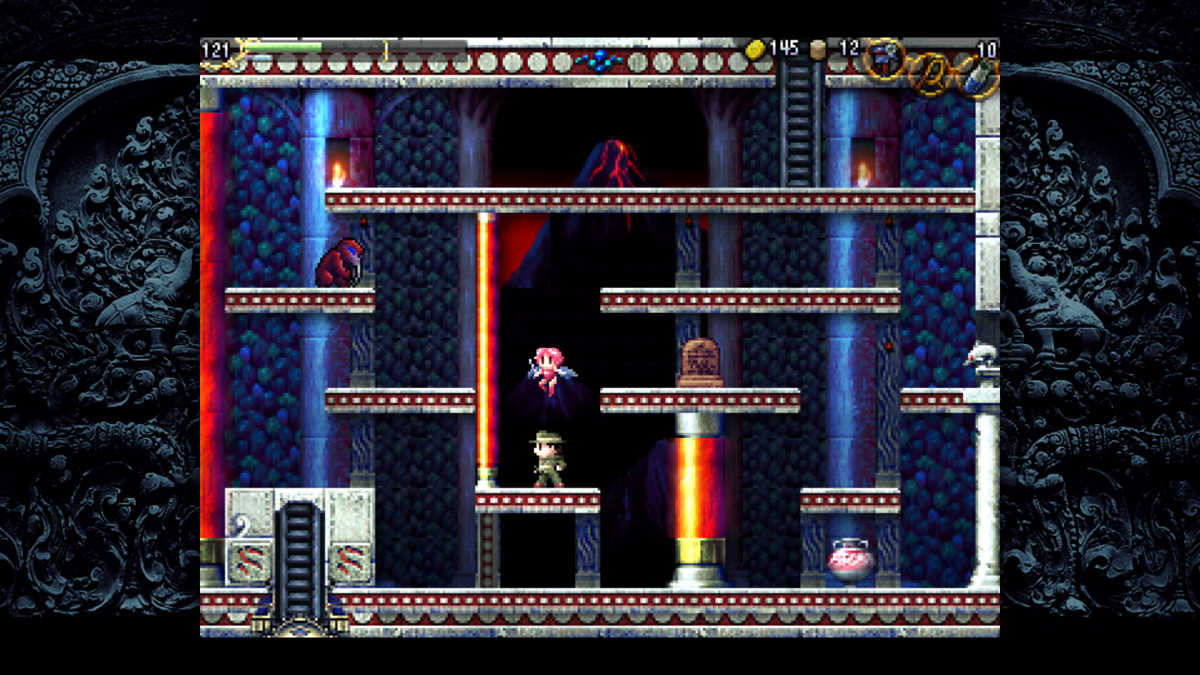 Of course, with the same power they wield to be practical, accessible, and navigable, video game spaces can also be significantly more confounding than real ones. Instead of different colors being used to differentiate areas, using the same colors all the time makes distinct zones difficult to compartmentalize. Having no unique landmarks prevents the ability to organize a mental catalogue of noteworthy experiences. Controlling a camera freely in 3D space (and/or a vague, impractical map) can make it tricky to maintain a consistent orientation. Someone with a more functional sense of direction will still be able to brute-force their way through a game designed this way, but for me, the sense of constantly spinning around in an identical loop with no tangible sense of progression can feel insurmountable. It doesn't always need to be – sometimes I can stick it through by overclocking my pattern-recognition and absolutely refusing to let go – but I truly could not escape OKAGE: Shadow King's abyss no matter how hard I tried (even with the help of video walkthroughs!) and the version of that games' characters who live in my PS2's memory card are still trapped in those halls to this day.
Of course, with the same power they wield to be practical, accessible, and navigable, video game spaces can also be significantly more confounding than real ones. Instead of different colors being used to differentiate areas, using the same colors all the time makes distinct zones difficult to compartmentalize. Having no unique landmarks prevents the ability to organize a mental catalogue of noteworthy experiences. Controlling a camera freely in 3D space (and/or a vague, impractical map) can make it tricky to maintain a consistent orientation. Someone with a more functional sense of direction will still be able to brute-force their way through a game designed this way, but for me, the sense of constantly spinning around in an identical loop with no tangible sense of progression can feel insurmountable. It doesn't always need to be – sometimes I can stick it through by overclocking my pattern-recognition and absolutely refusing to let go – but I truly could not escape OKAGE: Shadow King's abyss no matter how hard I tried (even with the help of video walkthroughs!) and the version of that games' characters who live in my PS2's memory card are still trapped in those halls to this day.
Control (2019)
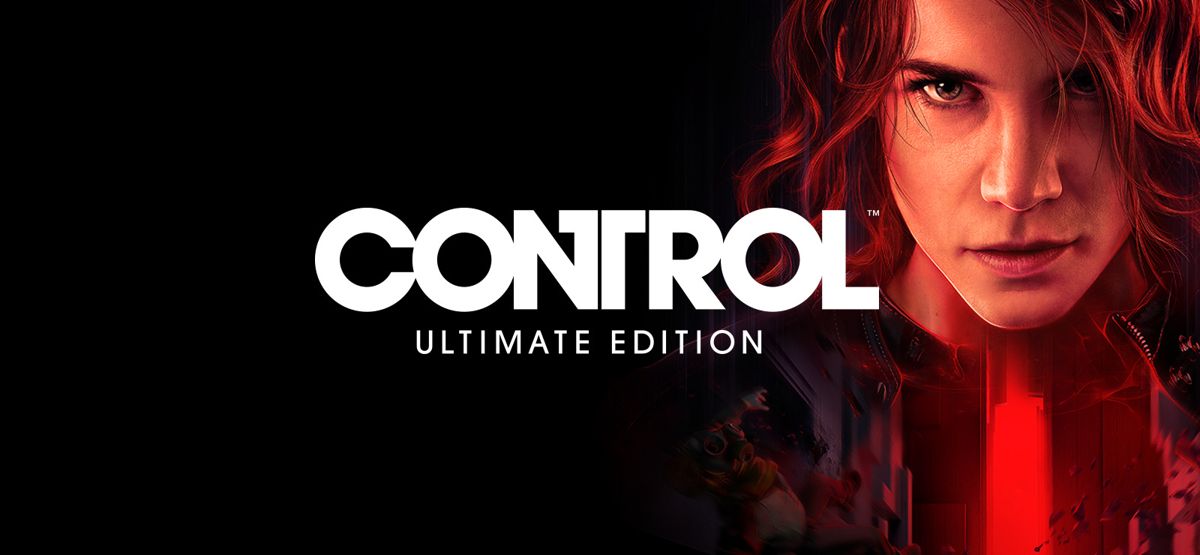
Of all the games I'm writing about, Control is the one I'm the most heartbroken to include. It excellently delivers so much that I desire from a video game, to the point that a game I directed myself utilized shockingly similar concepts before I ever even glanced in Control's direction (though the themes we explore with these concepts couldn't be more different). It could easily have been one of my favorite games ever, if not for one single disagreement that remained impossible to ignore. This single inescapable disagreement only continued to weigh heavier throughout my full six hours of play as I kept finding more to appreciate and love. Ultimately, the single stain on this pure white rug showed no signs of fading, so it was this which prevented me from seeing Control through to the end: I hate guns.
Honestly, my distaste in guns is a massive shame. Using a projectile to interact with surroundings is an excellent way to interface with a video game! The past twenty years in mainstream video game design trends will prove just how effective this method of interaction is – and it's one I even love myself. Two of my favorite video game series of all time are Kiki Kaikai and Touhou. I believe R-Type Final to be one of the most elegantly crafted video games in history and I've spent hours of my life replaying all the difficulty modes available in Mushihimesama to clear them without using a single continue. I adore shooting games, but I hate guns. The reason I love Kiki Kaikai is because it allows me to enjoy the magnificent design sensibilities of Shock Troopers or Ikari Warriors without needing to play as a man holding a gun taking the lives of other men holding guns. I love R-Type Final because it's exhilarating to see the raw creativity of fantastical weapons that aren't grounded in any kind of realistic history of actual firearms, as well as the many unique stage layouts that can be crafted to compliment such creative projectiles. When a shooting game decides to flavor itself with guns, it feels like a failing of imagination. The Cotton series and Magical Chase show us that projectiles don't need to be bullets, they can be magic. Kyuiin shows us that a weapon doesn't need to be a gun, it can be a vacuum cleaner. Chō Aniki, Harmful Park, and Parodius show us that any element of any video game can be any ridiculous thing in the world (or beyond), if only a designer is courageous enough to be so imaginative. All of these games use their theming to find more mechanical depth in their gameplay by considering the new opportunities opened by their unique properties compared to more standard games featuring guns. Resigning oneself to making a video game about guns is to deny the video game any chance of self-expression or creativity: "I want to use projectiles in this game. Guns shoot things, so let's use guns."

Surprisingly, Control seems to largely agree with me. Telekinetic abilities augment its gun-based combat and allow for more dynamic, inspired, almost improvisational styles of play than the ever-popular Gears of War-styled cover shooting. This is what gave me hope that Control wasn't like the other girls. I thought, similar to how I exclusively use the roller weapons in Splatoon, relying solely on the telekinetic abilities in Control would allow me to enjoy the entire game without ever needing to use a firearm. This came incredibly close to being true, but using these abilities depletes a meter which must recharge when fully emptied. How quickly the meter depletes and how slowly it charges back up, along with how frequently the abilities must be used in order to make the gun obsolete, proved to be an algorithm that could never perfectly add up. No matter what, the gun combat is still the meal, and the telekinetic abilities are ensured to only ever be an extra flavor dolloped on top rather than becoming a full replacement. I spent six hours in Control testing myself to see if I could put up with using the telekinetic abilities most of the time and only using the gun as a last resort, but unfortunately even that was too large of a demand for me.
Despite how it may seem, the aesthetic sensibilities of guns it not the foremost issue I have with them. Clearly that is something I'm passionate about, but it's not the sole reason I detest seeing them in video games so much. The true reason is that guns are horrible, evil things that catastrophically impact our real world with terrifying regularity. They are tools forged and utilized expressly for causing tragedies on purpose. It is impossible for me to ignore this in the blazing fictions of video games, and it's impossible for me to ignore this when my grandmother shows me the handgun she keeps for her own protection. I do not care about how righteous a reason someone might have for having or using a gun. I hate them. I especially hate seeing them used to mow down countless lives and hearing video gamists talk about how "cool" or "fun" it is to do this. Any time someone talks about the guns in DOOM "feeling good" I feel like an alien. This is not to say I disparage these people (and certainly not that I think violence in video games leads to violence in real life, it definitely does not), but being able to enjoy these kinds of sensations is so far removed from my own experience that I can't even pretend to start imagining what it would be like. Blowing off a zombie's head in Left 4 Dead is tragic to me. A player's body crumpling to the ground after being shot six times in the belly in a Call of Duty lobby is horrific. Being the one to perpetrate these actions and enjoying the sensation of doing so is impossible for me. It makes me feel terrible. I can't remove the depiction of a gun being used on a humanoid figure from the reality of these situations in our real world. Dressing it up with even a hint of fantasy helps to some extent – I love everything in Wild Guns for example, and that game literally has the word "Guns" in its title – but in a game like Control where everything is gorgeously rendered in a distinct realism (stylishly cinematic as it may be), I can't avoid the guilt and the sorrow and the grossness. I absolutely respect and appreciate the artistry of games like DOOM , Metal Gear Solid, Gears of War, The Last of Us, or even something like Virtua Cop, but it's just too much for me. I can't do it, and I think I like being the kind of person who wouldn't want to anyways.
Metroid Prime: Remastered (2023)
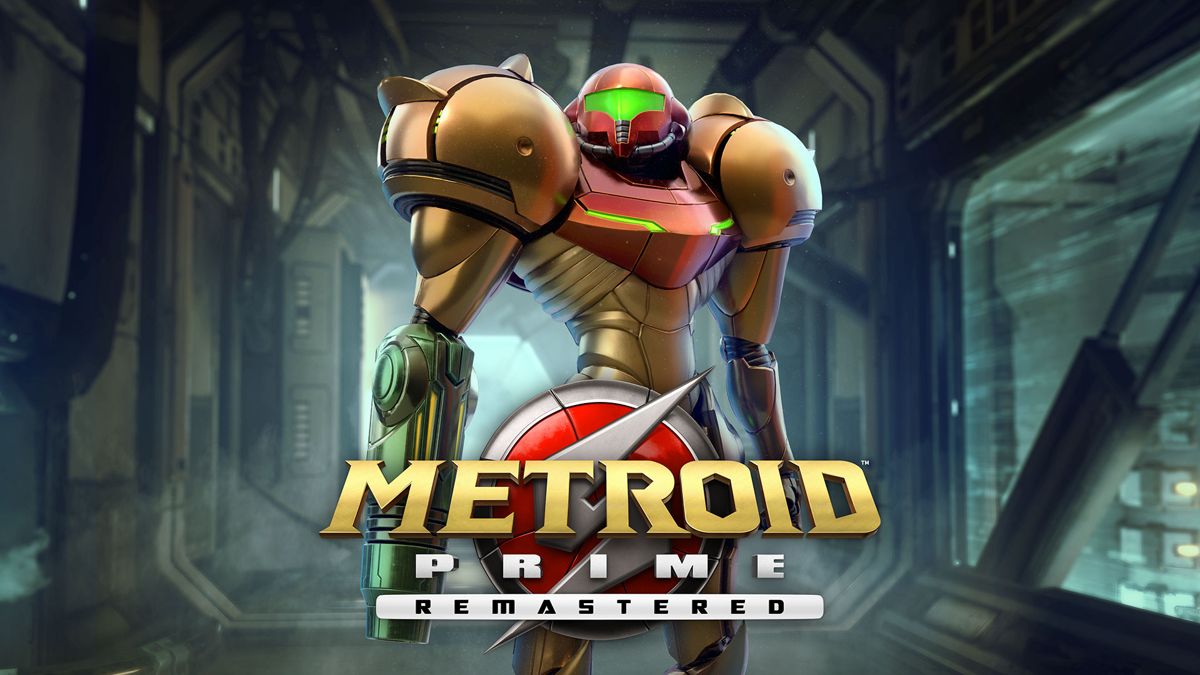
These issues I've mentioned are far from the only conflicts in video games that combat my neurodiversity, but they are the main three which are extremely present in Metroid Prime. Earlier I alluded to Super Metroid being one of my favorite games in one of my favorite genres; after two decades of hearing that Metroid Prime is just as good or better than Super Metroid, the release of a remake on the Nintendo Switch finally convinced me to check it out. I was dumbfounded to find a game that seemed to be going through a checklist of the key ways my autism manifests and doing everything it could to make this as unappealing for me to play as possible. Samus' arm cannon is a delightfully creative justification for shooting multi-directional plasma blasts in the 2D games, but being brought into 3D with a first-person perspective makes killing creatures significantly more grounded and visceral – not to mention the literal viscera that splashes up and coats the screen, contextualized as Samus' visor. The historically convoluted-yet-intuitive pathways that twist around each other in the 2D games becomes way too disorienting for me when a third axis is added, which also makes the map significantly harder to read. Every single room is populated with tiny little points of interests to analyze with the scan visor, each glowing with a little yellow light that dims once it's been registered. What, am I supposed to just not scan all of those? It's an exhausting game for me to work through. Back when I first started writing this I intended for the ending sentiment to be "but I'm pushing through anyways, I'm going to conquer this" – but since then I have not picked up the game a single time and the thought of doing so becomes less and less appealing every day. I've been playing Phantasy Star instead and having an excellent time with it (thanks to the maps included in the M2 port, of course). Maybe the real sentiment to end this with is not that I should push through the things that make me feel horrible, but that it's okay to accept my limitations and not force myself to do something like playing a video game that I don't want to play. Maybe to some people, Metroid Prime really is one of the best games ever made. I'm glad they get to have that experience, to enjoy something so thoroughly. It's hard and frustrating for me to play a game like that. My brain works differently from a lot of other peoples', and that doesn't have to be a problem. It's not something to overcome. This is the way I am, and it's okay for me to be this way.